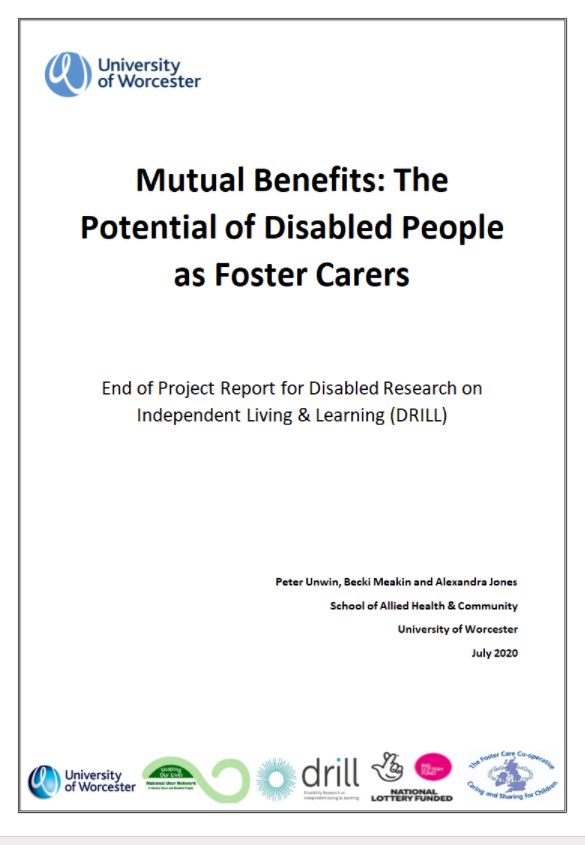Dr Peter Unwin, Becki Meakin and Alexandra Jones
July 2020
Foster care is a way of providing a family life for children and young people who are unable to live with their parents at points in time. There is a lack of literature relating to Disabled foster carers in the UK, and Disabled people appear to be largely absent from the fostering workforce. Lack of research in this area, coupled with unnecessary barriers such as inaccessibility of the built environment, information systems and support structures (many of which could quite easily be practically addressed) not only prevent Disabled people from enquiring, but also send a message, perhaps inadvertently, that Disabled people are not welcome as potential candidates for fostering.
As part of the DRILL (Disability Research on Independent Living and Learning) initiative, funded by the Big Lottery, a two-year pilot project was undertaken to encourage inclusive practice within the foster care system in England. This study explored the opportunities and barriers surrounding inclusivity of and accessibility for Disabled people wishing to become foster carers. Four foster care agencies – one private, one charitable and two statutory – were recruited as pilot sites for this project. Their existing practices were scrutinised and the scope for positive changes was assessed, exploring the ways in which Disabled people may be able to perform valued work roles in foster care, while at the same time providing positive role models for children and helping fill recruitment shortfalls.
In partnership/with support of: School of Allied Health and Community, University of Worcester; The Foster Care Charity
Download report (docx) 
